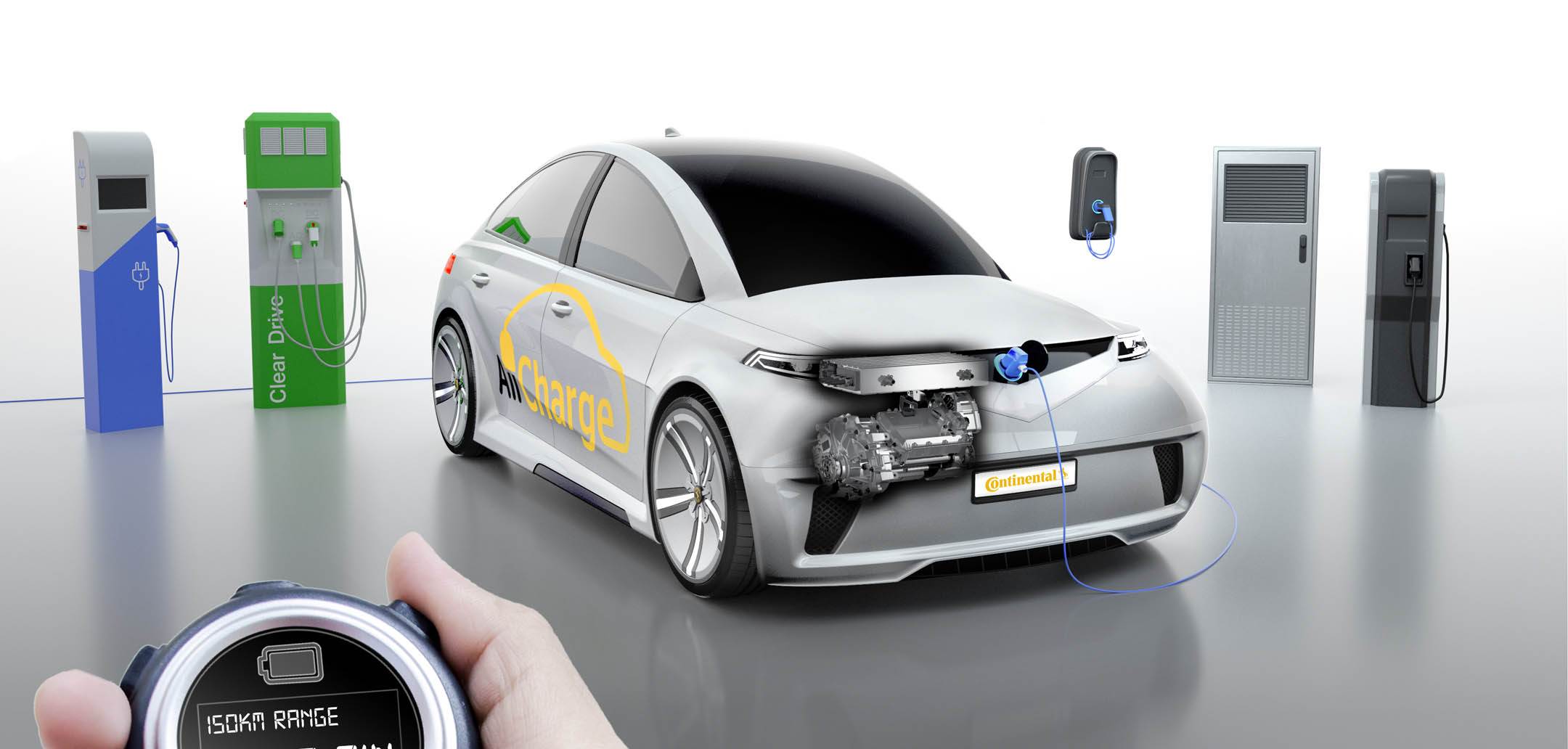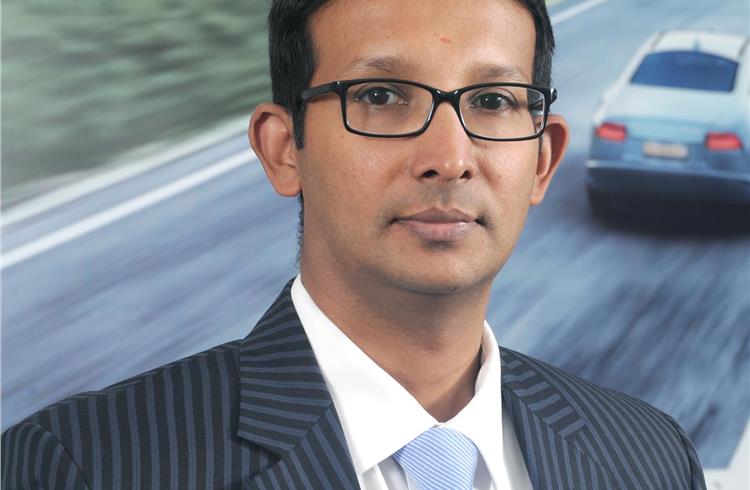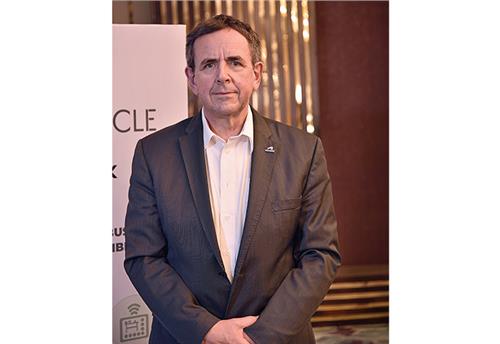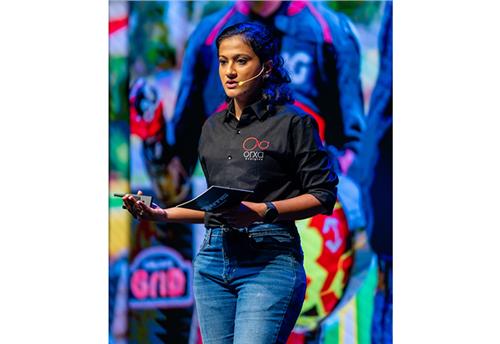'Development of battery tech will be key towards achieving mass-scale e-mobility in India.'
Soorajith Radhakrishnan, Head, Powertrain Division, Continental India on the government’s approach of fast-tracking electric mobility in India, its impact on the ecosystem and how this German component major is preparing itself to capitalise on the incoming opportunities.
Soorajith Radhakrishnan, Head, Powertrain Division, Continental India, speaks to Autocar Professional, giving his outlook on the government’s approach of fast-tracking electric mobility in India, its impact on the ecosystem and how this German component major is preparing itself to capitalise on the incoming opportunities. Excerpts:
What is Continental Automotive Components India's outlook of the NITI Aayog mobility report that suggests that India can become a large EV market by 2030-2032?
It is a promising step by NITI Aayog. Transformation of the mobility scenario in India is only possible with all stakeholders coming together to work on the same objective. Only with a clear and unambiguous policy can the industry move towards large-scale adoption of electric mobility. It is a very ambitious target and will be heavily dependent on the evolution of battery technology and also charging infrastructure.
Do you think the ambitious targets set for all-electric mobility are achievable?
As mentioned, development of battery technology will be key towards achieving this target. A large-scale program to develop the necessary infrastructure for charging would need to be undertaken.
Given the current push by the government, how do you think the ecosystem now needs to prepare for a large-scale market for electric vehicles?
The primary concerns still are (vehicle’s running) range and (electric vehicle’s high) costs. Eventually a consumer is looking for a mobility solution that is on par with a petrol or diesel vehicle – in terms of costs and mileage.
Technologies need to be upgraded, and more investments are required for the same. One of the top priorities should be to set up infrastructure to support electric mobility, for easy charging of electric vehicles. One of the biggest anxieties of an EV driver is the absence of charging infrastructure that can get them stranded on the road. Continental has solutions and technologies on offer that can help address this challenge. These are:
AllCharge Technology: The technology makes EVs fit for any type of charging. This is achieved by turning electric powertrain into ‘universal charger’ catering to all types of cable-based charging station. This helps in attaining maximum charge in a given power station. The bidirectional AllCharge system opens up whole new applications for the large amounts of energy stored in the vehicle battery, for example at the camping area.

The AllCharge system can always use the maximum output rate, up to 800V and up to 350 kW at all types of charging station – single-phase AC, three-phase AC or high-speed DC. The vehicle is equipped with a single cable connector, but there are two possible charging current paths to the battery. In the case of AC current, the current flows from the charging station via the electric motor to the inverter, where it is converted into DC current before being supplied to the battery. In the case of DC current, the current from the charging station flows directly through the inverter to the battery.
Inductive Charging: It is an automated wireless charging solution for EVs. Charging of the vehicles is done without cables yet achieving improved efficiency. Inductive charging solution includes vehicle positioning, electronic communication, charging management, safety monitoring and data retrieval. The charging power is transferred wirelessly from a ground-based charging pad to a receiver pad on the underside of the vehicle. All the driver has to do is to park over the charging pad, assisted by an innovative Continental micro-navigation solution.
As soon as the vehicle approaches a parking bay equipped with inductive charging, an authentication dialog with the charging station is executed automatically. A human-machine interface shows the driver when the vehicle has reached the correct parking position and confirms that charging has started. As soon as the wireless authentication process has been successfully completed and the vehicle is correctly parked, the charging pad starts transmitting power. At a charging rate of 11 kW, every minute of charging time provides approximately one kilometre of driving range
And, along with an ecosystem that provides charging infrastructure, comes the need for grid that accommodates the requirements of EVs. In the long run, as a market we will need to continue working on increasing awareness, improving the infrastructure, working on reducing capital costs, electrification of public transport systems, and, say, even look at different business models, e.g. working with fleet aggregators.
How is Continental preparing to capitalise on the opportunities around electric vehicles globally and in India in future?
Continental is convinced that there is no getting around the fact that vehicle electrification needs to be pushed forward in order to meet the CO2 fleet targets of our customers in the long term. This requires attractive prices and solutions that are tailored to the needs of end customers.
At the same time, the internal combustion engine will remain the dominant propulsion system in vehicles beyond 2025/2030. This is why we are also continuing our commitment to further developing internal combustion engine technology.
IAA Examples: 48 Volt mild hybrid technologies, technologies for a cleaner diesel “Super Clean Electrified Diesel”, high voltage technologies for hybrid cars and EVs, fast and comfortable charging solutions, technologies for synthetic fuels.
Our 48-volt system is making the combustion engine quieter and the air cleaner. Continental has begun production of the worldwide first 48 V Hybrid Drive: From the end of 2016, diesel variants of the Renault Scénic and Grand Scénic models were equipped with Continental's 48-Volt hybrid drive.
Another promising technology from Continental is 48-volt mild hybrid diesel engine. The 48-volt mild hybrid system not only reduces fuel consumption (and therefore CO2 emissions) but can also achieve significant reductions in pollutant emissions from diesel engines. The electric motor, with a rated output of around 15 kW, not only allows braking energy to be recuperated and stored as electricity in a small lithium-ion battery but can also assist the internal combustion engine during short, sharp bursts of acceleration.
One of the other interesting technology from Continental is the Electric Axle Drive. A highly integrated Electric Drive System with inverter, electric machine and reducer. The technology gives an advantage to our customers when it comes integration, sourcing and validation.
Is the company looking to boost its R&D and work towards newer technologies and innovations for EVs in the future?
We are rapidly scaling up our R&D efforts. With changing trends we need to be robust in our approach. Our team is constantly working on innovative technologies that set new market standards. Our 48-volt mild hybrid and AllCharge technologies are good example that projects our R&D competence.
What is Continental's roadmap for manufacturing the components for EVs in India in the foreseeable future?Globally Continental is already supplying a broad portfolio of EV technologies to customers. With increased acceptance of these technologies in the market, we will look at localizing entire value chain right from R&D to manufacturing based on specific customer requirements.
(This interview was part of a feature story on component makers' preparedness for electric mobility in India, published in Autocar Professional's September 1, 2017 issue)
RELATED ARTICLES
BRANDED CONTENT: 'We aspire to be among the leading sensors and electro-mechanical products manufacturer'
P. Parthasarathy, Founder & Managing Director, Rotary Electronics Pvt Ltd shares the company's commitment and vision to ...
‘Big opportunity for startups lies in products in India’: Detlev Reicheneder
As electrification levels the playing field, the focus on tech and R&D to bring innovative products is the mantra for st...
'I hope my journey makes people say — I can do this too'
Ranjita Ravi, Co-founder of Orxa Energies — the maker of Mantis e-bikes — shares the challenges of building a startup an...





 08 Jan 2018
08 Jan 2018
 8146 Views
8146 Views





 Autocar Pro News Desk
Autocar Pro News Desk




